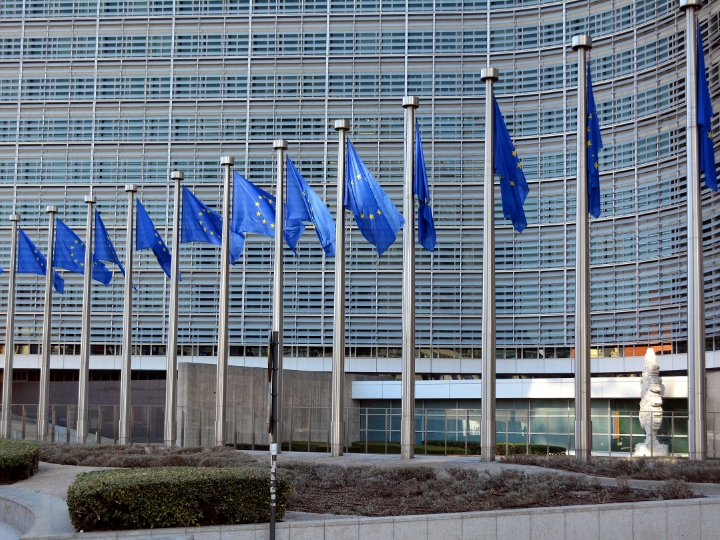by Alexandra Brzozowski
As the EU continues its soul-searching exercise to structure its approach to future enlargement, hopefuls outside the bloc now float ‘progressive’ integration as the short-term answer.
In mid-October, the European Commission is expected to publish its annual enlargement package with reports on how much progress aspirant countries’ have made towards joining the bloc.
Until now these have included the Western Balkan six – Albania, Bosnia and Herzegovina, Kosovo, Montenegro, North Macedonia, and Serbia – as well as Turkey.
For the first time, the EU executive’s enlargement package will also include reports on Ukraine, Moldova, who applied for EU candidate status last year, and Georgia, who received a ‘European perspective’.
It is safe to say no package has been as eagerly anticipated as the upcoming one, with a silent consensus that the EU’s last summit of the year, in December, could produce potentially significant decisions on future enlargement.
Naturally, Brussels and EU member states are now racing to discuss the matter in all constellations possible.
A breakfast talk of a group of 10 EU leaders on the sidelines of the June summit in Brussels opened the season for brainstorming on what the bloc’s enlargement could mean for its future.
According to several EU diplomats in Brussels, it ruffled quite some feathers – especially with the Czechs, Austrians and Greeks, who were not amused for not having been invited.
Now Greek Prime Minister Kyriakos Mitsotakis on Monday evening (21 August) hosted top officials from the region’s EU hopefuls, as well as European Commission President Ursula von der Leyen and European Council President Charles Michel.
The informal gathering was meant as a follow-up to the EU’s landmark Thessaloniki summit held more than 20 years ago, which had concluded that “the future of the [Western] Balkans is within the European Union”.
But this gathering – one of many different informal formats that have been taking place in recent months – went down less smoothly than expected.
Although branded as an EU-Western Balkans dinner, Ukraine’s President Volodymyr Zelenskyy and Moldovan counterpart Maia Sandu were invited and largely stole the show.
Neighbouring Albania – locked in a bilateral spat with Greece – was not there, and there were two other notable absences:
Georgia, who admittedly has a rather rocky relationship with Brussels over its deteriorating domestic political situation, was furious about not being invited, while Turkey’s absence was a little less surprising, despite the recent thaw in relations, at least from the EU side.
EU leaders are expected to take the discussion about the bloc’s absorption rate and necessary reforms a step further when they meet for an informal summit in Granada under the Spanish EU Council presidency in early October.
The informality of the Granada summit could help consolidate some of the brainstormed ideas, several people familiar with the ongoing conversation said.
However, there is no illusion about the timelines.
“After Granada, the discussions will keep going during the following EU summits and we will probably have some results next year – we’re talking about a long-term process,” one EU diplomat told EURACTIV before summer – and that’s a view widely shared in Brussels.
What is also clear is a growing impatience in the EU’s neighbourhood, despite the revival of enlargement, over the lack of a clear strategic vision of how accession can be made possible.
Some Western Balkans ministers voiced their frustration at a summer seminar chaired by the EU’s chief diplomat Josep Borrell in the Spanish town of Santander on Tuesday (22 August).
Their main problem: moving goalposts.
“After we changed the name, we changed the constitution, unfortunately, we were vetoed again. This time, not by Greece, but unfortunately by France,” North Macedonia’s Foreign Minister Bujar Osmani recalled.
Currently, the opposition is coming from neither of the two, but Bulgaria.
Echoing previous pleas, Osmani argued in favour of bringing the Western Balkans on a gradual path of ‘progressive’ integration – with access to the EU’s single market and in various policy fields like energy or transport – before actual accession to the bloc.
An EU official familiar with the file confirmed Brussels might need to think more strategically.
“Realistically, this is something we should be looking at – in parallel to our internal reform debates,” said the EU official, who spoke on condition of anonymity.
“Just look at Ukraine. We’re technically doing it there already, it was a strategic decision, and it is certain to pay off in the end,” the official added.
*first published in: Euractiv.com




 By: N. Peter Kramer
By: N. Peter Kramer

